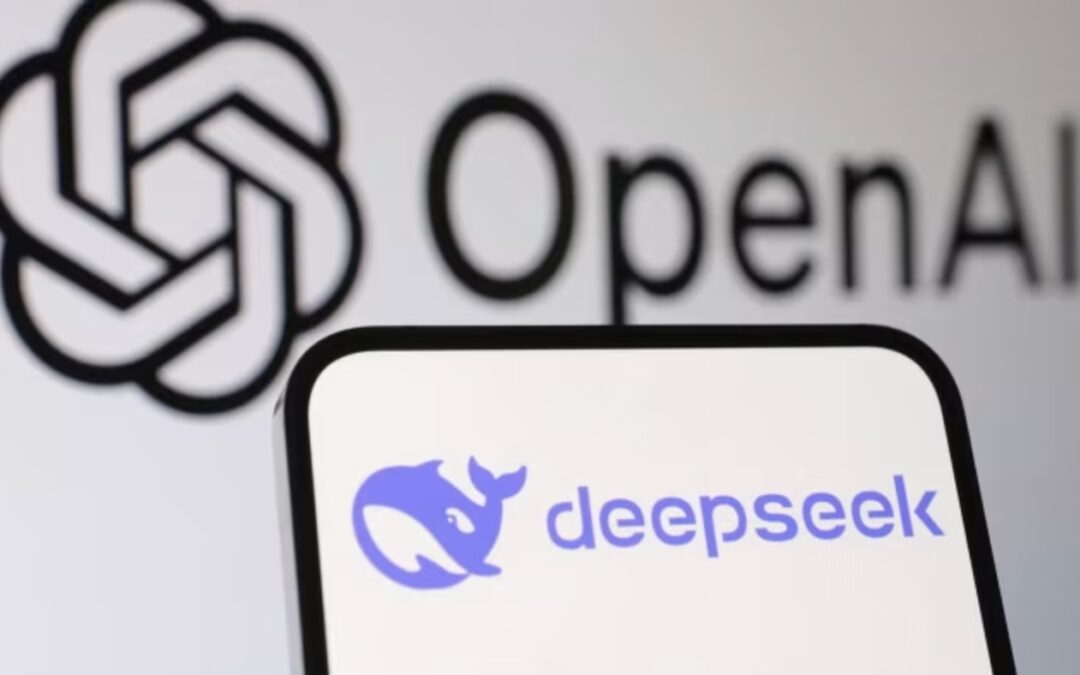According to Forbes, the abrupt appearance of China’s DeepSeek AI chatbot has put the US AI sector into a “panic.”
AI-related equities tumbled dramatically on Monday, with chipmaker Nvidia leading the way with a 17% decline, wiping out roughly USD $600 billion of the company’s market capitalization. (A comeback on Tuesday reversed some of those losses.)
What’s the reason behind the panic? DeepSeek appears to have produced a chatbot with skills comparable to those of US-made chatbots, but with a fraction of the resources and cost required to construct the US models. The startup claims it spent only $5.6 million developing the chatbot, whereas OpenAI spent more than $100 million producing ChatGPT-4.
READ MORE: Voice Of Siri, Susan Bennett Scarjo: Right To Lawyer Against Open AI
It now appears that DeepSeek did this through intellectual property theft. According to news reports, OpenAI – the creator of the ChatGPT chatbot that sparked the global AI frenzy a few years ago – is looking into whether DeepSeek violated its intellectual property when developing its R1 artificial intelligence model.

According to Bloomberg, OpenAI was warned of the possible breach by its primary backer, Microsoft. The AI business then denied DeepSeek access to ChatGPT, according to the Financial Times.
For anyone following the ongoing conflict between copyright owners and AI engineers, this appears to be a clear case of tables turning: The New York Times, comedian-writer Sarah Silverman, Game of Thrones author George R.R. Martin, and German music licensing authority GEMA have all filed legal complaints against OpenAI. They are all accusing the firm of training its AI on copyrighted content without authorization.
In an interview with Fox News, President Donald Trump’s artificial intelligence czar, David Sacks, stated that there is “substantial evidence” that DeepSeek employed “distillation” to build AI technology.
READ MORE: ChatGPT Is Accessible For Texting And Calling Thanks To OpenAI
Distillation is the process of training a smaller, more efficient AI model to imitate the outputs of a bigger, less efficient model in order to reproduce its behavior. The technique is used to construct AI services that are less expensive to develop and use less processing power and energy to operate.

However, DeepSeek appears to have utilized ChatGPT-4 to train its own, smaller model, which violates OpenAI’s rules of service, according to FT.
“The issue is when you [take it out of the platform and] are doing it to create your own model for your own purposes,” an alleged OpenAI official said.
Some researchers believe it will be difficult to prevent AI developers from utilizing distillation to piggyback on the achievements of other AI developers because the practice is common.
READ MORE: More Voices And A New Appearance Are Added To OpenAI’s Advanced Voice Mode
“It is a very common practice for start-ups and academics to use outputs from human-aligned commercial LLMs, like ChatGPT, to train another model,” Ritwik Gupta, a PhD candidate in AI at the University of California, Berkeley, told the Financial Times.
“It does not surprise me that DeepSeek is rumored to be doing the same. If they were, it might be impossible to halt this practice precisely.

“We know [People’s Republic of China]-based companies – and others – are constantly trying to distill the models of leading US AI companies,” a statement from OpenAI said.
“We engage in countermeasures to protect our IP, including a careful process for which frontier capabilities to include in released models, and believe . . . it is critically important that we are working closely with the US government to best protect the most capable models from efforts by adversaries and competitors to take US technology.”
This is a stark contrast to the tone OpenAI has used in defending itself against allegations of intellectual property theft. In response to the lawsuit filed by Sarah Silverman and other authors, OpenAI stated that it intends to defend itself by arguing that utilizing copyrighted works to train AI should be deemed a “fair use” exemption under US copyright rules.
Other AI developers have used the “fair use” argument, including Anthropic (sued by Universal Music Group (UMG), Concord, and ABKCO for allegedly violating copyrights on lyrics) and Suno and Udio, two AI music-making apps sued by the three music majors, which have all but admitted to using UMG, Warner Music, and Sony Music content without permission in developing their apps.
Following DeepSeek’s release of R1 and the resulting market instability, AI developers may reconsider their liberal position on intellectual property.
Radiant TV, offering to elevate your entertainment game! Movies, TV series, exclusive interviews, music, and more—download now on various devices, including iPhones, Androids, smart TVs, Apple TV, Fire Stick, and more.


